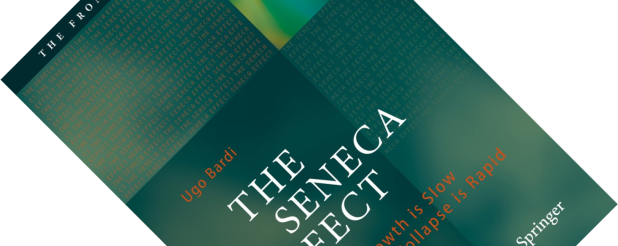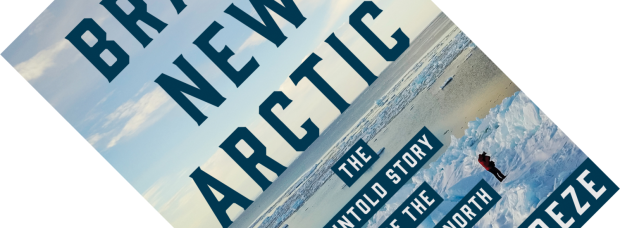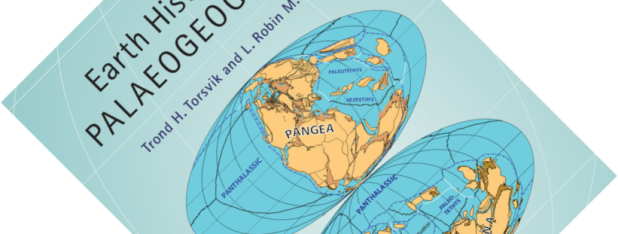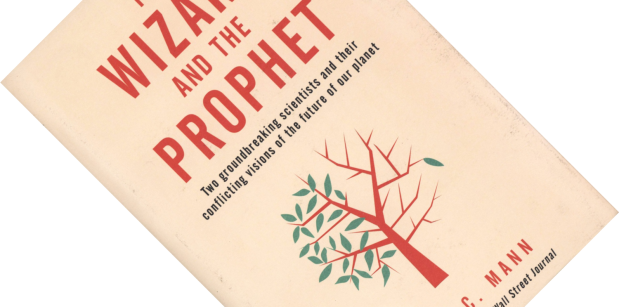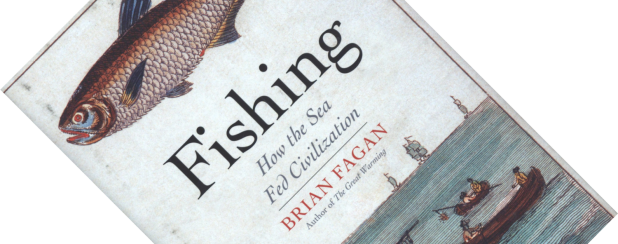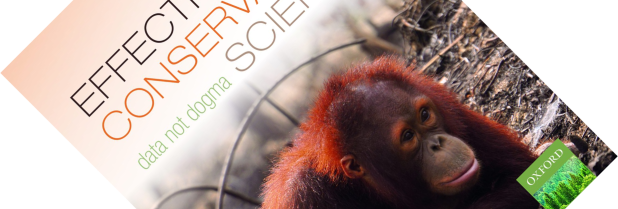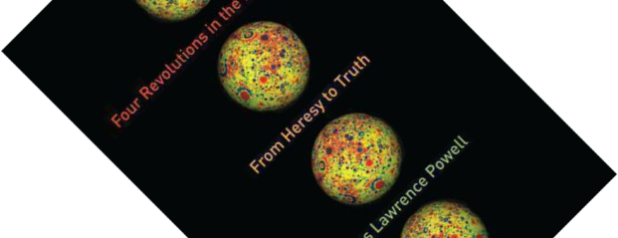I am going to start this review on a tangent. The liner notes of the 1983 album Zeichnungen Des Patienten O.T. of the German industrial band Einstürzende Neubauten contained the slogan “Destruction is not negative, you must destroy to build”. I don’t expect that Ugo Bardi shares my taste in music, but, judging from this book, I’m sure that if we were to sit him down with the band members over a pint, they would have plenty to talk about. Because, according to Bardi, collapse is a feature, not a bug.
climate change
Book review – Brave New Arctic: The Untold Story of the Melting North
You might think that with the constant presence of the subject of climate change in news stories there isn’t much left to tell. But just because a certain sense of climate-change-fatigue might have set in (which is worrying in itself), climate change has not stopped. In Brave New Arctic, geography professor Mark C. Serreze gives an eye-witness account of how the Arctic is rapidly changing, based on his more than 35 years of personal involvement. And as he shows, there certainly are stories left to tell.
Book review – Earth History and Palaeogeography
This book is an example of what happens when you go down rabbit holes. I have been reading several books on the subject of palaeontology and geology lately, and I know that the face of the earth has shifted over the hundreds of millions of years of deep history covered in these books. But where were all the continents at different times? Many will have seen the iconic maps of the supercontinent Pangaea. But I want to know more. What happened in between? And before? As Nield tells in Supercontinent: 10 Billion Years in the Life of Our Planet, Pangaea was only one of several such supercontinents in Earth’s history. But I want to know more still. Where exactly were the continents located? And how did they move? Several accessible books have provided snapshots of iconic moments, such as the formation of the Himalayas (Mike Searle’s Colliding Continents: A Geological Exploration of the Himalaya, Karakoram, & Tibet) or the disappearance of the Tethys ocean (Dorrik Stow’s Vanished Ocean: How Tethys Reshaped the World). But I want to know more! This technical reference work contains lots of fantastic palaeogeographical maps that answered all my questions.
Book review – The Wizard and the Prophet: Two Remarkable Scientists and Their Conflicting Visions of the Future of Our Planet
If I asked you to propose solutions to some of the world’s problems and future challenges, things such as overpopulation, food production, hunger, soil erosion, resource depletion, energy production etc., what ideas would you put forth? Most likely, your proposals would build on the intellectual legacy of two men you have never heard of. Allow American journalist and writer Charles C. Mann to introduce you to ecologist William Vogt, father of the environmental movement, and Nobel-Peace-Prize-winning plant breeder Norman Borlaug, instigator of the agricultural Green Revolution.
Book review – The Oceans: A Deep History
So, stop me if you’ve heard this one before, but it is often said that we know more about the moon than we do about our own oceans. However, palaeo-oceanographer and climate scientist Eelco J. Rohling points out we know more than you might think. His new book, The Oceans: A Deep History, takes the reader through a 4.4-billion-year history of Earth’s oceans. Much more than just a book about water, this is foremost a book about the intimate link between our planet’s climate and its oceans, as they are far more intertwined than you might give them credit for.
Book review – Planet of Microbes: The Perils and Potential of Earth’s Essential Life Forms
What unites deep subterranean caves, hydrothermal vents in the deep sea, our guts, cloud formation, geochemical processes, and astrobiology (the search for life beyond our planet) to name but a few things? Microbes. The tiny, single-celled organisms that we cannot see with the naked eye are everywhere. With Planet of Microbes, Ted Anton makes the point that this world is really theirs, and takes the reader on a tour of the rapid increase in our understanding of their importance, focusing on three major subjects.
Book review – Fishing: How the Sea Fed Civilization
Brian Fagan is a celebrated archaeologist and author who has written many books on the topic of environmental history. Several of these sit on my shelves, though I admit this is the first book by his hand that I have read. With Fishing, Fagan presents a deep history of fishing from the time of our human ancestors up to the present day, highlighting its overlooked role in the history of human civilization. His story spans the globe and pieces together a fragmented and complicated puzzle.
Book review – Seeds of Science: Why We Got It So Wrong On GMOs
As a biologist, the opposition to genetically modified organisms (GMOs) both baffles and vexes me. Spurious claims are being bandied about by people and organisations who seemingly haven’t a clue about genetics, and there has been a long-running campaign of fearmongering by large conservation bodies, notably Greenpeace. Like the “debate” around climate change or creationism, the dialogue has become toxic and polarised, and anyone who does not oppose is likely to be called a “Monsanto shill”. As this is first and foremost a book review though, I will try to keep my personal views on this issue aside for another time. This book, then, has a very interesting premise. A book arguing why we got it wrong on GMOs, written by a former anti-GMO activist.
Book review – Effective Conservation Science: Data Not Dogma
Following hot on the heels of Cambridge’s Defending Biodiversity: Environmental Science and Ethics, Oxford University Press has just published the edited collection Effective Conservation Science: Data Not Dogma. Whereas the former title was careful about courting controversy, a quick scan of the chapter titles of this book suggest it is seeking out hot-button issues sure to upset some people (“Uncomfortable questions and inconvenient data in conservation science”, “Introduced species are not always the enemy of conservation”, or “Rehabilitating sea otters: feeling good versus being effective”). Together, these two books form an excellent combination of a philosophical and pragmatic examination of biodiversity conservation, and how we could do better.
Perhaps more than any other discipline, conservation science arouses strong feelings of righteousness, of fighting the good cause. Critical questions or results that run counter to the narrative of nature-in-decline are unwelcome, often out of fear that policymakers and the media will misinterpret such findings, leading to drastic reduction in support for conservation efforts. Though understandable, Effective Conservation Science is a collection of 26 cautionary tales of the dangers of such thinking.
Book review – Four Revolutions in the Earth Sciences: From Heresy to Truth
Try as we might, science is very much the work of human beings with all their foibles. As such, scientific advances aren’t always straightforward and can run into opposition within scientific circles when new ideas run counter to currently established ones. In Four Revolutions in the Earth Sciences, American geologist James Lawrence Powell demonstrates this by taking the reader through the history of four ideas in the earth sciences that initially weren’t accepted. This was a book I very much wanted to read.

